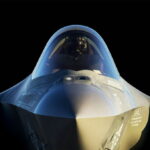The aviation industry requires a “basket of measures” to achieve its sustainability goals, driven by highly fuel-efficient aircraft, said Julie Kitcher, chief sustainability officer and communications at Airbus.
Sustainable Aviation Fuel (SAF) is also a key element for the future reduction of air transportation’s carbon footprint.
Airbus and TotalEnergies recently signed a strategic partnership to address the challenges of decarbonising aviation through SAF.
In line with the objective of achieving net carbon neutrality of aviation by 2050, the partnership aims to contribute to the reduction of the sector’s CO2 emissions.
SAF supplied by TotalEnergies can reduce up to 90% CO2 emissions over their lifecycle compared to their fossil fuel equivalent.
Airbus is also working with Avinor, SAS, Swedavia and Vattenfall to investigate the feasibility of a hydrogen infrastructure at airports in Sweden and Norway.
This cooperation will provide better understanding of hydrogen aircraft concepts and operations, supply, infrastructures and refueling needs at airports in order to help develop this hydrogen aviation ecosystem in both countries.
The work will also identify the pathways to select which airports will be transformed first to operate hydrogen-powered aircraft in both countries as well as the accompanying regulatory framework.
This is the first time that a feasibility study of this kind covers two countries and more than 50 airports.
“We need a basket of measures to make the most fuel-efficient aircraft,” Kitcher said.
“We need to work on further innovation and a further improvement of fuel efficiency, because the less fuel you need to put in your aircraft, the more affordable it is to use SAF because you need a smaller volume.
“We are working on initiatives to improve the efficiency of traffic management, that can bring up to 10% of our CO2 efficiency in operations.
“In terms of fuel efficiency, there are big improvements to be made. And then in terms of the market based measures, we need a basket of measures, so mandates will encourage airlines to purchase SAF, because we are all operating within a carbon budget which gets more expensive over time.
“We are working on carbon removal measures; direct air carbon capture is a very promising technology.
“And then we need to work on the recognition of those carbon removals, so starting with nature-based offsets, and moving to technology-based offsets, which is the DACs. We need to look at a full range of tools in the toolbox.”
Subscribe to the FINN weekly newsletter

